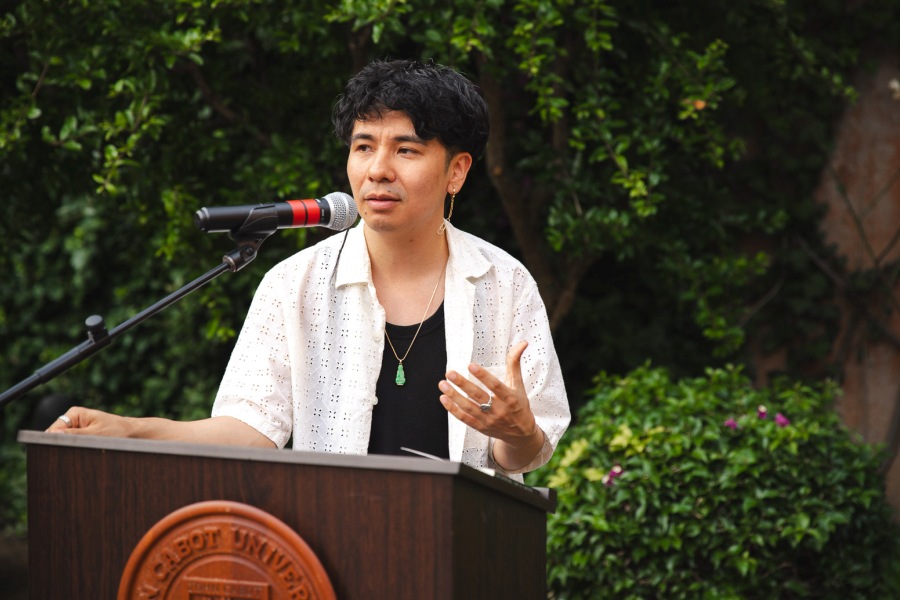JCU Welcomes Pino Musolino for a Talk on the Belt and Road Initiative
Professor Ieva Jākobsone Bellomi’s International Business class welcomed Mr. Pino Musolino, President (Chairman and CEO) at Autorità di Sistema Portuale del Mar Tirreno Centro Settentrionale – Porti di Roma e del Lazio, on March 9, 2022, to discuss the Chinese government’s activities in the scope of the Belt and Road Initiative (BRI).

Pino Musolino
In recent years, international trade dynamics have become more complex to define in light of governmental agreements that foster free trade. Today, geopolitical interests play a significant role in how trade and investments are directed. The Belt and Road Initiative (BRI) is the largest infrastructure project undertaken by an individual country, China, in the last decade.
When he was President of the Port of Venice, Musolino was a key player of the Italian Government in reaching an agreement for the Memorandum of Understanding (MOU) between the Republic of Italy and the People’s Republic of China in 2018. In the scope of the BRI, the MOU was expected to facilitate cooperation between the two countries by increasing investments in strategic transportation infrastructure projects in Italy.
Musolino highlighted that since the political ideological declaration in 2013 by Chinese President Xi Jinping, the Belt and Road Initiative has been adaptive in aligning the policies and needs of the Chinese Communist Party with the geopolitical and economic realities of the world. The ideological focus on connecting the Eurasian continent by strengthening trade routes has remained, however the projects financed by the Chinese government have adapted to the geopolitical opportunities of the state’s interests. Chinese investments in Africa are located in coastal African countries, which ensures Chinese interests in African maritime trade routes. The African continent is expected to be the next manufacturing and economic growth hub, given that it is rich in natural resources.
Musolino acknowledged that the idea of global power has been significant for centuries in the development of trade routes. From the second century BCE, the Silk Road connected China and Italy, which allowed Chinese silk and porcelain to flow to Europe. These same trade routes were traveled by Marco Polo. Historically, Europeans have had networked trade routes, which are replicated in the current European Union transportation networks.
Currently, there are more than 140 countries represented as official members of the Belt and Road Initiative. The Asian Infrastructure Investment Bank, established in 2015, provides financing to Chinese government approved infrastructure projects across trade and transportation routes. Musolino explained that approval criteria for financing the projects are unclear and not compliant with the transparency requirements for recipient countries. Furthermore, none of the projects can be considered financially and commercially viable, however the geopolitical interests of the Chinese government are important criteria for financing the developmental projects.
Referring to the trade wars that started in 2016, it is clear that the impact of Western democracies is weakening. As Musolino explained, the Belt and Road Initiative as such is neither good nor bad, but it is still advisable for Western democracies to strengthen their geopolitical positions. In response to this, the United States and the European Union have developed their own global economic development projects, which should be seen as complementary counterparts, not competitors, to the Belt and Road Initiative for a common goal of global prosperity.
The guest lecture was delivered as part of the Anima Mundi global lectures series, with the intent to expose students to different global perspectives and professional opinions to prepare them for careers in international settings.
Professor Jākobsone Bellomi will be teaching a new course on China’s Perspectives on Globalization and Business in Fall 2022.





